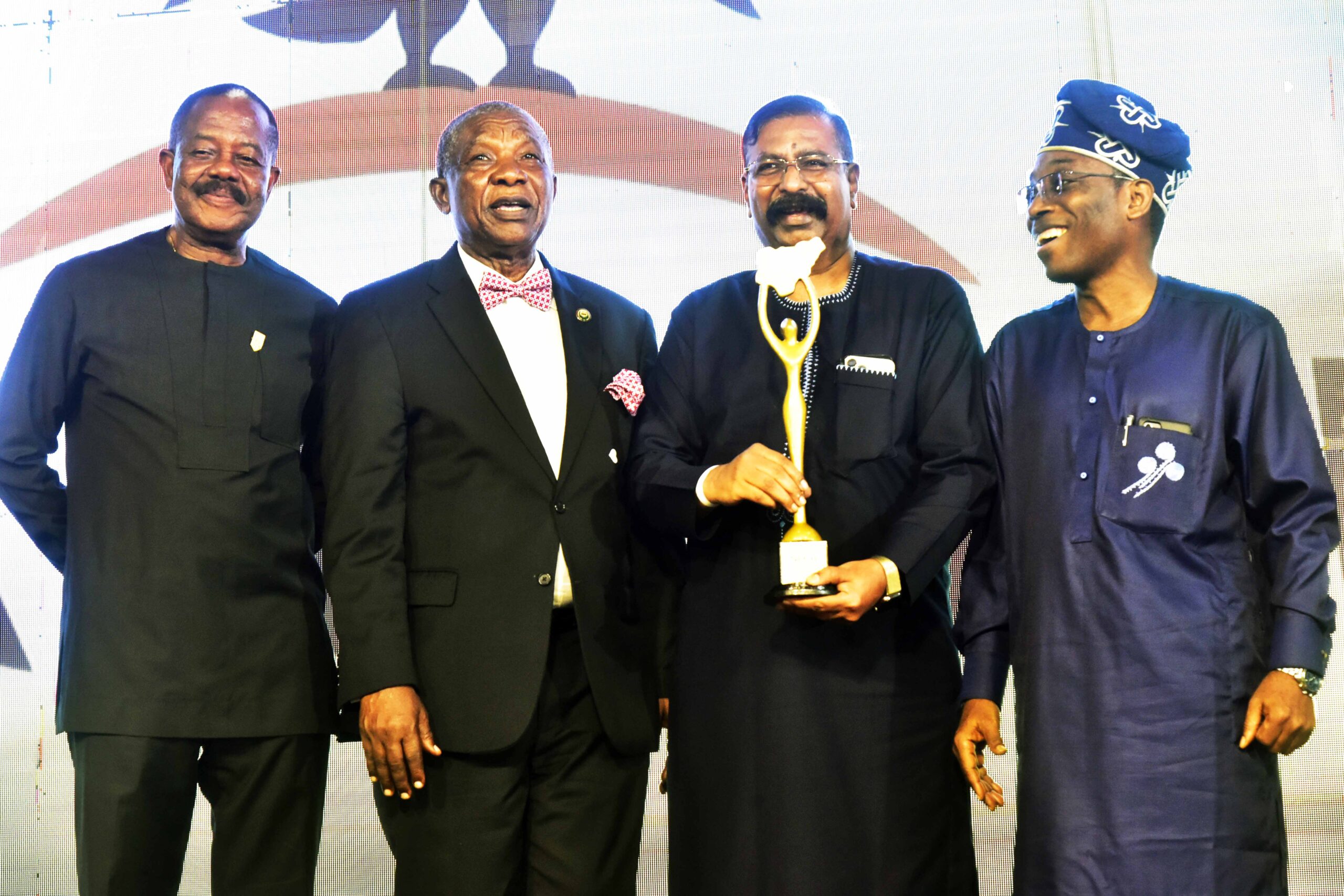Business
Dangote Cement Unveils New Students’ Internship Scheme

As part of efforts to improve efficiencies in training and to ensure higher quality output of Engineering students, the Dangote Cement Plc has launched a novel Internship Scheme for students of tertiary institutions in Nigeria.
Biztellers reports that it will see the students undergoing a one-year internship fully funded by the leading cement manufacturer.
During the induction of pioneer students of Yaba College of Technology, Lagos, the Lagos Regional Sales Director, Dangote Cement, Tunde Mabogunje, said the scheme was designed to provide practical and on-the-job-experience for excellent Engineering students in higher institutions across Nigeria.
ALSO READ: We Have Not Fixed Petrol Price – Dangote
According to him, the scheme is part of Dangote Cement’s Corporate Social Responsibility (CSR) and offers a unique opportunity for engineering students to apply the knowledge they’ve gained in classrooms and laboratories to real-world situations.
Mabogunje expressed the view that by combining their academic learning with practical, on-field training, students would emerge as well-rounded engineers.
He said “We are kicking off this phase of the scheme in Lagos and Kano States. A total of 20 students are involved with 10 students selected from each of the two states. In selecting the interns, we wrote to the authorities of Yaba College of Technology and Kano Polytechnic requesting for the list of the best performing students in Building Studies.
“We are to train the selected students on the right application of cement with specific reference to Dangote Cement in accordance with Standard Organisation of Nigeria (SON) prescriptions. The interns are to be deployed to various building project sites while technical officers from Dangote Cement will be on ground to monitor them.”
The Dangote Cement boss pointed out that the project underscores the company’s belief that acquisition of vocational and technical skills is vital to the wellbeing of any sector in particular and the economy as a whole.
“They are vital prerequisite for growth. However, dearth of vocational and technical skills has had an adverse effect on the building sector. This internship programme is apt and a major step in the right direction towards addressing the gap. As trainees gain practical field experience, they will be well-prepared to become well-rounded professionals and make significant contributions to the industry.
“At Dangote Group, we are committed to providing vocational training to young Nigerians to equip them with a range of valuable skills. To address gaps in some of our plants, we recruited graduates from engineering and technology-based programmes and trained them in various aspects of industrial operations. These technicians were subsequently deployed to our plants in Obajana, Ibese, Gboko, as well as our sugar and salt refineries in Apapa and Ikeja. They have demonstrated that, with the right training and orientation, young Nigerians excel in every assignment they undertake.
“For our oil refinery and fertiliser plant, we recruited hundreds of graduates of Engineering based courses and sent them abroad for training. This set of professionals are now running the new plants and are training other sets of engineers through skill transfer.
“We provide vocational training programmes for our host communities. The youths are veritable assets in any society and the quality of the youths determines the outlook of tomorrow’s society. Therefore, an investment in developing vocational skills among youths will yield the desired results,” Mabogunje asserted.
In his remark, the Rector of Yaba College of Technology, Dr. (Engr.) Ibraheem Adedotun Abdul commended Dangote Cement management for the scheme describing it as a landmark achievement in CSR.
He expressed happiness that Yaba College of Technology has been chosen as a pioneer institution for the scheme and assured that the participating students from the institution would live up to expectation and the scheme will achieve its objective of bridging the gap between academic performance and practical experience.
The programme the Rector said would expose the students to practical aspects of their field of studies and so when they finished in school they would have acquired the necessary skills that will make them take off as a professional with ease.
Engr. Abdul stated that the College has other groups, institutions, and Companies which it partners with for the purpose of advancing the skills of the students.
He then disclosed that the College management was at the verge of setting up Industry Advisory Committee for which he canvassed for a representative from Dangote Cement.
While noting that the door of Yaba College of Technology is opened to further partnerships by Dangote cement and other similar organisations, the Rector assured that the initiative would make the student sound both on and off the field and be more useful to the society.
In the same vein, Dangote Cement National Sales Director, Funmi Sani said the internship initiative was not unexpected from Dangote Cement because the company stands for quality and anything that would bring quality into both academic and practical skills application would interest the company.
He urged the students to take the maximum opportunity provided by the scheme to up their game and stand out among the rest, noting that they will be paid by Dangote Cement for the period of the internship.
Business
Nigeria Can Achieve 5.5% GDP Growth – NESG
The Nigerian Economic Summit Group (NESG) has projected that the country has the potential to achieve a 5.5% growth in Gross Domestic Product (GDP) if critical policy reforms are sustained.
This was disclosed on Thursday during the launch of the NESG’s 2025 Macroeconomic Outlook report.
Speaking at the event, the Chief Economist and Director of Research & Development at NESG, Dr. Olusegun Omisakin, highlighted the need for more efficient policy implementation to unlock Nigeria’s economic potential.
READ MORE: Davido Is Richer Than His Billionaire Father – Ibrahim Chatta Claims
“We believe at the optimal level, if we embark on more efficient policy reforms, the Nigerian economy has the potential, the GDP to end up at 5.5 per cent, and we believe that this is achievable,” Omisakin stated.
More to follow……….
Business
CBN Approves Release Of Nigerian FX Code
The Central Bank of Nigeria (CBN) has announced the release of the Nigerian Foreign Exchange (FX) Code, a set of guidelines designed to promote ethical conduct among authorized dealers in the country’s FX market.
In a statement, the apex bank disclosed that the official launch of the Code would take place on Tuesday, January 28, 2025, at the CBN Head Office Auditorium in Abuja.
READ MORE: Dangote Denies Culpability In Pumping Up Petrol Price
“The Central Bank of Nigeria has approved the release of the Nigerian Foreign Exchange (FX) Code as a guideline to the banking industry to promote the ethical conduct of authorised dealers in the Nigerian Foreign Exchange Market,” the statement read.
The introduction of the FX Code is expected to enhance transparency, accountability, and professionalism within Nigeria’s foreign exchange ecosystem, aligning it with global best practices.
The event is anticipated to attract key stakeholders in the financial and banking sectors, as well as representatives from authorized FX-dealing institutions across the country.
Business
How Trump Plans To Grow American Economy By $1 Trillion Daily

The 47th President of the United States, Donald Trump attracted up 3 trillion dollars in investments into the country’s economy in his first full day at work.
This was gleaned from the verified handle of the POTUS on micro-blogging site, X, on Wednesday.
Biztellers reports that the POTUS is focused ensuring at least $1 trillion investment daily for the first seven days of his return to the White House, which would be driven by key clearly identified areas, including artificial intelligence.
ALSO READ: WHO Expresses Regret Over US’ Withdrawal
President Trump wrote, “In total, before the end of my first full business day in Washington and the White House, we’ve already secured nearly $3 trillion of new investments in the United States.
“And probably, that’s going to be six or seven by the end of the week.”
In a short video clip accompanying the statement, President Trump assured that the surge in investments would likely hit $7 trillion within his first seven days as the 47th POTUS.
He highlighted that artificial intelligence had proven to be an area lots of willing entrepreneurs had shown much appetite for.


















